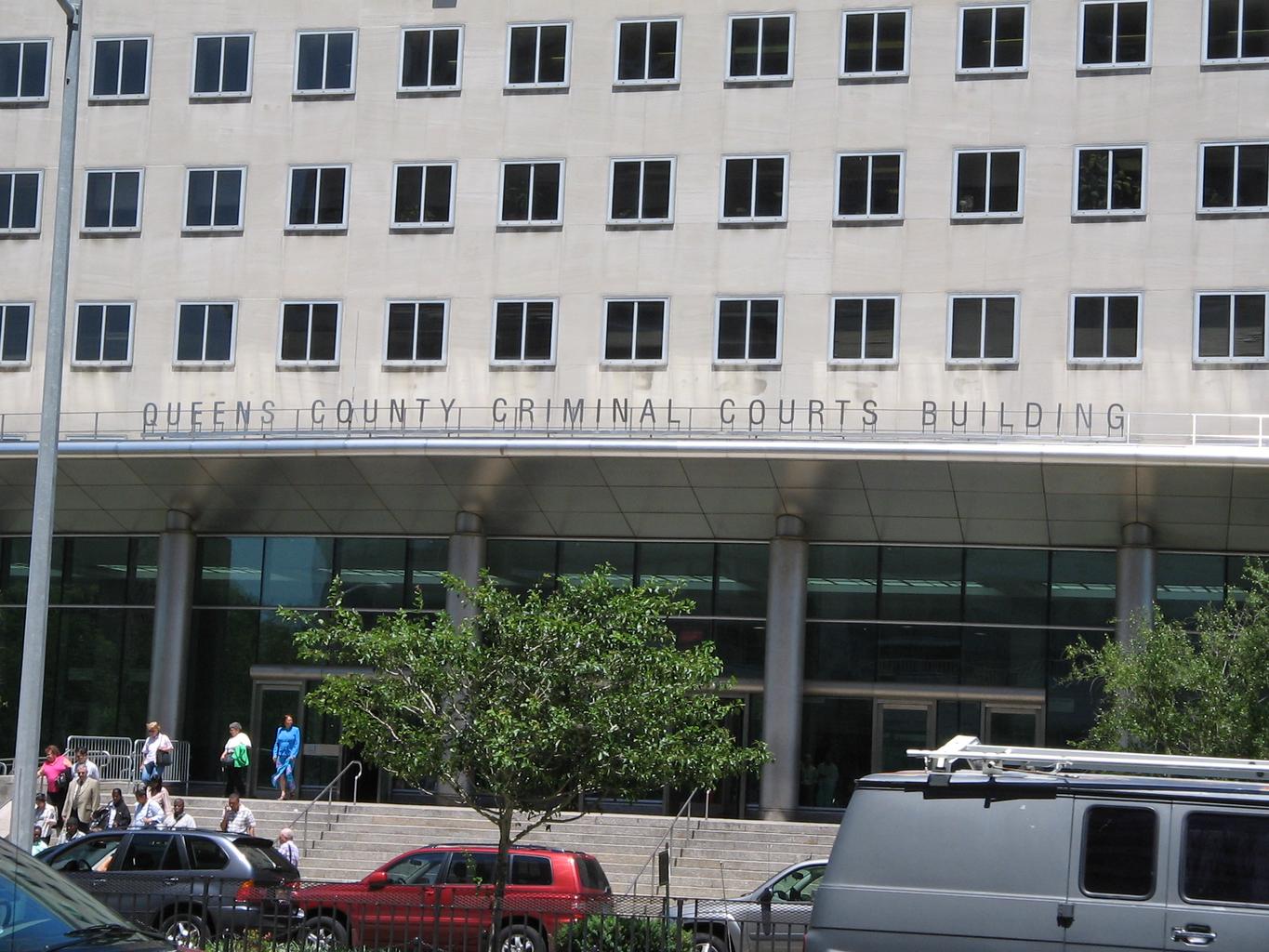In this case, the father, allegedly in recovery from substance abuse, still is dealing with anger, a luxury he cannot afford if he wants unsupervised visitation.
MATTER OF NICOLE J. v. JOSHUA J., 2022 NY Slip Op 3780 - NY: Appellate Div., 3rd Dept. 2022:
"CLARK, J.
Petitioner (hereinafter the mother) and respondent (hereinafter the father) are the parents of a child (born in 2018). Following the parties' separation in March 2020, the mother commenced a Family Ct Act article 6 proceeding, seeking an initial custody determination. The father subsequently sought a temporary order granting him supervised parenting time with the child,[1] and, by temporary order entered in December 2020, Family Court ordered that the father was to have supervised parenting time once a week for a period of up to six hours, with such parenting time to be supervised by a certain individual. Less than a week later, following an incident during the father's supervised parenting time with the child, the mother commenced a Family Ct Act article 8 proceeding, alleging that the father had committed the family offenses of disorderly conduct, harassment in the first or second degree, menacing in the second or third degree and/or attempted assault. Following a hearing on the mother's petitions, Family Court awarded the mother sole legal and primary physical custody of the child and directed that the father have supervised parenting time for "at least two hours" per week at the Parents as Leaders Resource Center, along with phone or electronic communication with the child and access to the child's educational, health care and religious records. Because the initial supervisor was no longer willing to supervise the father's parenting time, Family Court designated the child's maternal uncle as the supervisor, but stated that the parties could agree to an alternate supervisor from time to time. As for the mother's family offense petition, Family Court found that the father committed the family offense of disorderly conduct and, consequently, issued an order of protection in favor of the child and the mother. The father appeals.[2]
Contrary to the father's contention, Family Court's determination to award the mother sole legal custody of the child has a sound and substantial basis in the record. Although joint legal custody is "an aspirational goal in every custody matter" (Matter of Clupper v Clupper, 56 AD3d 1064, 1065 [2008]; see Matter of Elizabeth B. v Scott B., 189 AD3d 1833, 1835 [2020]), joint legal custody may not be feasible or appropriate in cases where the parents are unable to "effectively and directly communicate with one another to care for the child's needs" (Matter of David J. v Leeann K., 140 AD3d 1209, 1211 [2016]; see Matter of Amanda YY. v Faisal ZZ., 198 AD3d 1125, 1126 [2021]). "We accord great deference to Family Court's factual findings and credibility determinations given its superior position to observe and assess the witnesses' testimony and demeanor firsthand, and will not disturb its custodial determination if supported by a sound and substantial basis in the record" (Matter of Daniel TT. v Diana TT., 127 AD3d 1514, 1515 [2015] [citations omitted]; see Matter of Derek KK. v Jennifer KK., 196 AD3d 765, 767 [2021]).
The hearing evidence demonstrated that the father has perpetrated multiple, escalating acts of physical domestic violence against the mother. Additionally, the evidence reflected that the parties' attempts to communicate routinely deteriorated into argument and that they have been unable to communicate about, or for the good of, the child. Considering this evidence, we find that a sound and substantial basis exists in the record to support Family Court's determination that an award of sole legal custody to the mother is in the child's best interests (see Matter of Nicole V. v Jordan U., 192 AD3d 1355, 1357-1358 [2021]; Matter of Samantha GG. v George HH., 177 AD3d 1139, 1140-1141 [2019]; Matter of Adam E. v Heather F., 151 AD3d 1212, 1214 [2017]).
The father also argues that he should have been granted unsupervised and more expansive parenting time. "Generally, Family Court must fashion a parenting time schedule that accords the noncustodial parent frequent and regular access to the child[], unless there is evidence that frequent parenting time would be contrary to the child[]'s best interests" (Matter of Nicole Y. v Joshua X., 183 AD3d 996, 997 [2020]; see Matter of Aida B. v Alfredo C., 114 AD3d 1046, 1049 [2014]). However, Family Court may order supervised parenting time if it determines that the "parent `is either unable or unwilling to discharge his or her parental responsibility properly'" and that, therefore, unsupervised parenting time would be "detrimental to the child's safety" (Matter of Taylor v Fry, 63 AD3d 1217, 1218-1219 [2009], quoting Matter of Kathleen OO., 232 AD2d 784, 786 [1996]; see Matter of Damon B. v Amanda C., 195 AD3d 1107, 1108 [2021]).
The evidence established that, in addition to perpetrating acts of domestic violence against the mother, the father frequently became frustrated with the child and would yell and curse at her. For example, during the incident that prompted the mother to file the instant family offense petition, the father had difficulty managing the then two-year-old child's desire to play with toys in an adjoining room. The father "yell[ed]" and, according to the initial supervisor, "grabbed [the child] by the arm and threw her on a chair. .. pretty aggressively," causing her to cry for an extended period of time. The father then cursed at the child, called her names and likened her to her mother in a disparaging way. There was evidence that the father had been similarly impatient and physically aggressive with the mother's other children. Further, the interim report resulting from a Family Ct Act § 1034 investigation, which was admitted into evidence, stated that there were child protective concerns related to the father's temper.
As for the father's alleged substance abuse, the father admitted that he had previously been addicted to heroin but asserted that he had been sober for years and was engaged in multiple forms of treatment. However, the father did not offer treatment records or any other documentation to support his claim of sobriety, despite having multiple opportunities to do so (see Matter of Vincente X. v Tiana Y., 154 AD3d 1113, 1114 [2017]; Matter of Menhennett v Bixby, 132 AD3d 1177, 1180 [2015]). Family Court, having had the opportunity to hear the father's testimony and evaluate his credibility, found the father to be untruthful and instead credited the testimony of those who were familiar with the father's appearance and behavior while he was using heroin.
Considering all of the foregoing evidence, we find that there is a sound and substantial basis in the record to support Family Court's determination to direct supervised parenting time for the safety of the child (see Kimberly C. v Christopher C., 155 AD3d 1329, 1335-1336 [2017]; Matter of Adam E. v Heather F., 151 AD3d at 1214-1215), as well as its determination to grant the father "at least two hours" of supervised parenting time per week at the Parents as Leaders Resource Center (see Matter of Carin R. v Seth R., 196 AD3d 776, 778 [2021]). Although two hours of weekly parenting time is limited, Family Court allowed for additional parenting time as the parties could agree (see Matter of Derek KK. v Jennifer KK., 196 AD3d at 768). Further, given certain evidence demonstrating that she would not be a suitable supervisor, we discern no abuse of discretion in Family Court's determination to reject the father's proposal that the child's paternal aunt supervise parenting time (see Matter of Vincente X. v Tiana Y., 154 AD3d at 1115; see generally Matter of Carl KK. v Michelle JJ., 162 AD3d 1273, 1275 [2018]).
Turning to the mother's family offense petition, we agree with the father that there was insufficient evidence to establish that he possessed the requisite culpable mental state for disorderly conduct — that is, the "intent to cause public inconvenience, annoyance or alarm, or recklessly creating a risk thereof" (Penal Law § 240.20; see Family Ct Act § 812 [1]). "[C]ritical to a charge of disorderly conduct is a finding that [a respondent's] disruptive statements and behavior were of a public rather than an individual dimension" (People v Baker, 20 NY3d 354, 359 [2013]; see Matter of Cassie v Cassie, 109 AD3d 337, 341-342 [2013]). Here, the subject incident took place in a private room with a partially closed door at a location dedicated to visitation with young children and there was no evidence as to the number of people near the room at the time of the incident (see generally People v Baker, 20 NY3d at 360). Although an employee of the Parents as Leaders Resource Center checked in on the room shortly after the incident, there was no evidence as to that employee's response to the incident. Accordingly, Family Court erroneously concluded that the father committed the family offense of disorderly conduct (see Matter of Smith v Morrison, 196 AD3d 772, 774 [2021]; Matter of Sharon D. v Dara K., 130 AD3d 1179, 1181 [2015]).
Nonetheless, this Court may "independently review the record to determine whether a fair preponderance of the evidence supports a finding that the father committed one of the qualifying family offenses" (Matter of Debra SS. v Brian TT., 163 AD3d 1199, 1203-1204 [2018]; see Matter of Maureen H. v Bryon I., 140 AD3d 1408, 1410 [2016]). Upon exercise of that review power, we find that the proof established that the father committed the family offense of harassment in the second degree and that he is not entitled to a justification defense. As relevant here, "[a] person is guilty of harassment in the second degree when, with intent to harass, annoy or alarm another person. .. [h]e or she strikes, shoves, kicks or otherwise subjects such other person to physical contact, or attempts or threatens to do the same" (Penal Law § 240.26 [1]; see Family Ct Act § 812 [1]). However, "[a] child's caretaker may use reasonable physical force for the purpose of discipline" (Matter of Anthony J. v David K., 70 AD3d 1220, 1221 [2010]; see Penal Law § 35.10 [1]). "In determining whether a parent's belief regarding the need to use physical force to maintain discipline was reasonable, the trier of fact must consider whether a reasonable person in the same position as the parent would have believed that such force was necessary" (People v Kearns, 56 AD3d 1047, 1049 [2008] [internal quotation marks and citations omitted], lv denied 12 NY3d 784 [2009]).
As discussed, the evidence demonstrated that the father used an "aggressive" amount of physical force to grab the two-year-old child by her arm and "thr[o]w" her in a chair, after which he yelled profane and disparaging insults at the child. In our view, the father's conduct and language toward the child — which did not constitute reasonable disciplinary measures — evince an intent to alarm the child (compare Matter of Kristie GG. v Sean GG., 168 AD3d 25, 29 [2018]; Matter Anthony J. v David K., 70 AD3d at 1221). Accordingly, we find that the proof adduced at the hearing sufficiently established, by a preponderance of the evidence, that the father committed the family offense of harassment in the second degree (see Penal Law § 240.26 [1]; Family Ct Act § 812[1]).
Turning lastly to his claim of ineffective assistance of counsel, the father has failed to demonstrate the absence of strategy or legitimate explanations for counsel's alleged shortcomings, including counsel's failure to marshal documentary proof of the father's purported sobriety, and, viewing the record in its totality, we are satisfied that he was provided meaningful representation (see Matter of Jeffrey VV. v Angela VV., 176 AD3d 1413, 1417 [2019]; Matter of Brent O. v Lisa P., 161 AD3d 1242, 1246-1247 [2018]; Matter of Bennett v Abbey, 141 AD3d 882, 884-885 [2016]; Matter of Robinson v Bick, 123 AD3d 1242, 1242-1243 [2014]; Matter of Elizabeth HH. v Richard II., 75 AD3d 670, 671 [2010]).
Egan Jr., J.P., Reynolds Fitzgerald, Fisher and McShan, JJ., concur.
ORDERED that the order is affirmed, without costs.
[1] As a result of a no-contact order of protection issued in favor of the mother and the child, the father had not had any contact with either since March 2020.
[2] The attorney for the child, like the mother, argues for affirmance."














